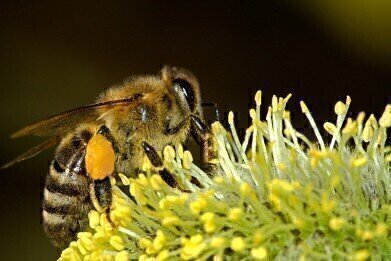Air Clean Up
Does Air Pollution Affect Bees?
Apr 25 2021
The role of the humble honey bee in maintaining the fragile ecosystem upon which our way of life is built should not be underestimated. Indeed, pollinators such as bees are instrumental in the cross-pollination of over a third of all agricultural crops worldwide, meaning that without them, food scarcity and starvation would become real concerns for much of the human populace.
However, bee populations in the UK and across Europe have been in decline for some years now. While much of the problem has been traced back to the global threat to biodiversity posed by the systemic use of pesticides, bees are under attack from a number of other factors, including loss of habitat, climate change and air pollution.
Expanding our understanding
The species-threatening impacts of pesticides like neonicotinoids have been well-documented, but less is known about the effects of other types of pollution, such as particulate matter 2.5 (PM2.5). In an effort to bridge that cognitive gap, a team of researchers from the Centre for Agroecology, Water and Resilience at Coventry University have partnered with the British Bee Keepers Association (BBKA) to conduct a study on the subject.
As part of their research, the scientists will create a so-called “Thriving Hive Hub”, comprised of a network of 60 beekeepers located across the Midlands. Each individual will allow the placement of sensitive particulate matter monitoring equipment in at least two or more of their hives, so as to record the levels of pollution to which bees are exposed on a daily basis. The sensors are also capable of recording temperature and humidity levels within the hive, as well.
A brighter future for bees
Armed with that data, the research team will then cross-reference it against information about productivity, incidences of disease and parasite loads. They will also work closely with the beekeepers to obtain a more detailed understanding of whether the pollution is detectable in the bodies of the bees themselves and in the food products they create. This should inform our comprehension of just how big a threat air pollution is to the pollinating population.
“The little research that has been done suggests that particulates in air pollution could impact bee immune and circulatory systems but not much is known about the physiological effects,” explained Dr Barbara Smith, who is involved in the study. “In our first project, we will determine the scale of the potential problem. We will then move on to look at the health outcomes for bees. Key to this project is working in partnership with beekeepers, who know their bees better than anyone else.”
Events
WEATHER • CLIMATE • WATER / EARTH OBSERVATIONS / GREEN ECONOMY
Oct 29 2024 St. Petersburg, Russia
Oct 30 2024 Hong Kong
Nov 05 2024 Toronto, Canada
Nov 06 2024 Ho Chi Minh City, Vietnam
Nov 12 2024 Valencia, Spain













